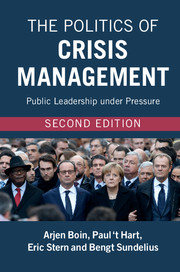At the ECPR general conference in Oslo on 6-9 September 2017, Femke van Esch, Henriette Muller and Marij Swinkels will host a panel: “The Role of Leadership in EU Politics and Policy-Making: The Value of Theoretical and Methodological Cross-Fertilization“.
The panel is part of the section on political elites and political leadership, titled “Old Dogs, New Tricks: Elites and Political Leadership in Contemporary Politics”. Our panel is entitled: “The role of leadership in EU politics and policy-making: The value of theoretical and methodological cross-fertilization”. The panel is still open for papers. If you wish to submit a paper for this panel please contact the Panel Chair(s) directly. More information about the Panel and the Chairs can be found below. The deadline for paper proposals is midnight GMT on 15 February 2017 so ensure you do so before this date.
Panel Chairs
Panel Chair: Professor Dr. Femke van Esch, Utrecht School of Governance; f.a.w.j.vanesch@uu.nlPanel Co-Chairs: Dr. Henriette Müller, New York University Abu Dhabi/Humboldt University Berlin; henriette.mueller@nyu.edu. Marij Swinkels, MA, Utrecht School of Governance; e.m.swinkels@uu.nl
Panel theme
Recent crises have shown that the EU has entered an era of transformation. Facing a rise in nationalism and with the legitimacy of the EU’s founding institutions at stake, European leaders are struggling to find common responses to these challenges that increasingly require transboundary, collective and determined leadership. The field of European studies, however, is predominantly institutional in nature and often neglects the impact of agency. Conversely, most leadership studies focus on the (sub-)national level and have yet to apply their ideas to European governance. While many single case studies of the actions and impacts of European leaders exist, there have only been few theoretically guided, comparative or large N-studies of the role of leadership in EU politics and policy-making (Van Esch & Swinkels 2015, Müller 2016). This Panel brings together experts on political leadership and EU governance to address the following questions: How do the formal and informal structures and practices of European politics affect the exertion of leadership – both individual and collective – at the national and supranational level? How do the behavior and characteristics of European leaders affect the process of European integration? How can we integrate the concept of leadership more systematically into the often institutionally driven theories of European integration? By addressing these questions, we aim to infuse EU studies with a more in-depth understanding of leadership, analyze the multifold implications of the EU system for exerting leadership and stimulate theoretically rigorous and methodologically comparative research in the study of European leadership.
For more information, please. visit the ECPR conference website

